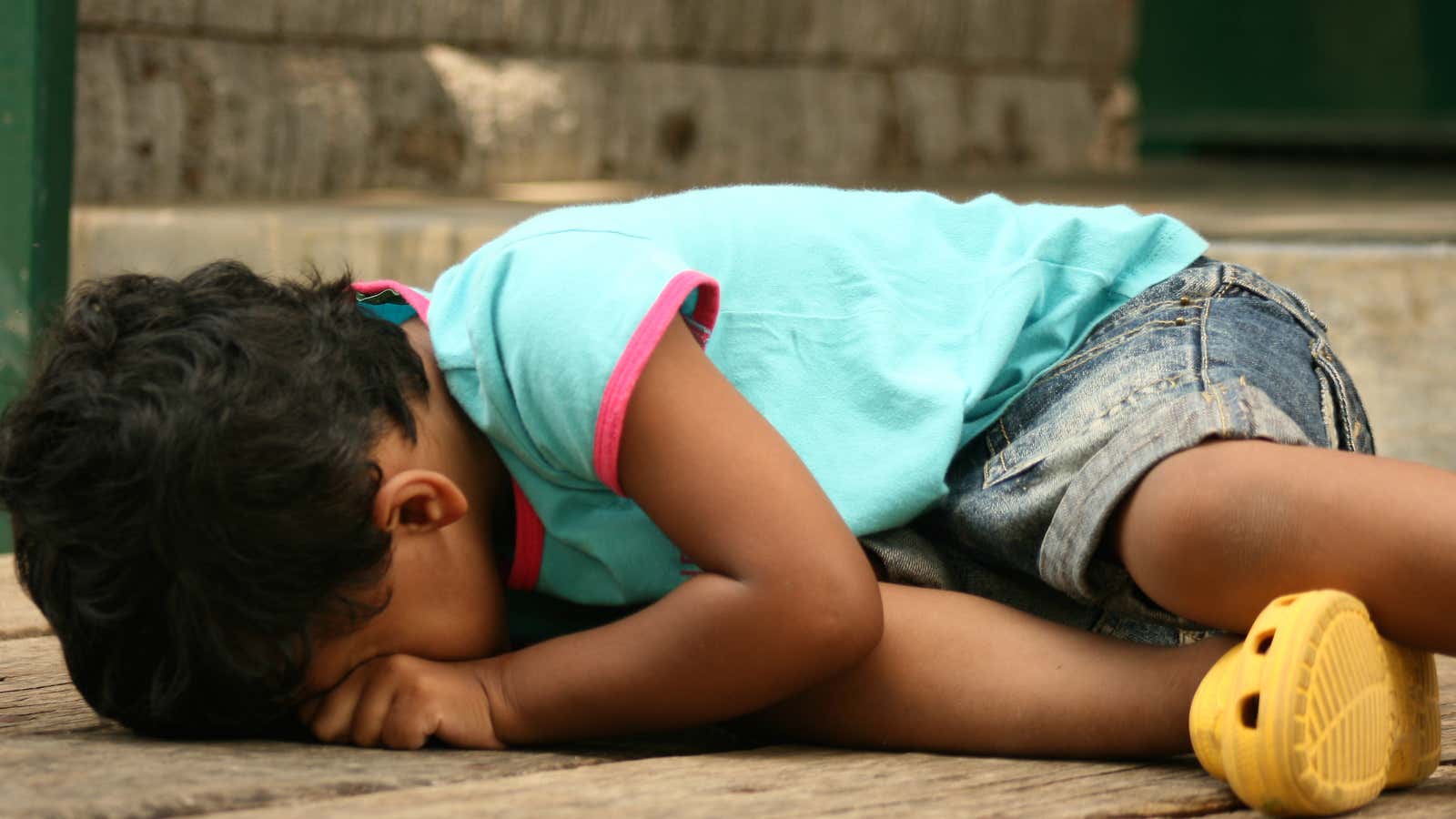Our kids were fun to make.
My now-husband and I wrapped up a great third date by doing all the things that they warn you not to do in eighth-grade sex education class. Turns out that they were right, because roughly nine months later, our son was born. A few years after that, our daughter came along—the direct result of our simultaneously finishing both season one of Homeland and a bottle of wine. And baby number three? I confess that I cannot remember her conception. But it was probably in our bed, during a blissful moment when neither of our small children were kicking me in the eyeballs or breasts, making it at least figuratively orgasmic.
So, we got lucky (pun intended): It was a pleasure to become parents. But is it a pleasure to be a parent? I am talking here about the day-to-day act of raising my children.
The short answer? No. Or to put it another way: Hell no.
But it is not the kids’ fault. My children are perfect as measured against the common hallmarks of childhood. They are perfect at being confused about when, how, and where to sleep. They are perfectly bewildered by adult expectations of civility and hygiene. They have perfected their feelings of rage when it comes to the rules of nutrition. And they are totally perfect at testing the limits of their own immortality, should I dare leave them unattended for five minutes while I use the bathroom.
Beginning with each of their births (during which I hoped that the epidural was for euthanizing me), right up to this evening when they declared under-seasoned broccoli the root of all evil, my kids have nailed Childhood 101. If your kid has ever tried to skateboard downstairs to breakfast, or broke down in wails of despair at the suggestion of wearing pants outside, then congrats on your perfect child!
Here’s the thing, fellow parents: Children are not are not supposed to bring you pleasure. They are supposed to bring you to your knees. (This is great, because that it’s really the best position for scraping Play-Doh out of the carpet with your nails anyway.)
But what else did I expect? Children arrive in this world as tiny, needy, wrinkly, toothless, immobile, pre-verbal, illiterate beings with no control over their bowls or emotions. They also do not pay rent and generate a truly alarming amount of laundry. In the last few years, it has been thoughtfully and thoroughly documented that the stork does not drop off a bundle of joy, but rather a bundle of exhausting and expensive challenges.
It is our job as parents to nurture, coach, prod and plead these little bundles into something resembling independent adults. I cannot think of any adequate preparation for this task, other than paying a very short terrorist all of your money to violently break into your room 10 minutes after you have fallen asleep and scream hysterically until you have located an infinitesimally small (yet emotionally essential!) toy, made a regulation-beige (only beige!) snack and scratched her back.
Personally, I blame Facebook for persuading me to have our first child. According to my feed, having a child is 96% adorable photo shoots involving spaghetti and 4% judging what other moms are feeding their babies. Both aspects sounded pretty entertaining to me at the time. As it turns out, my kids hate spaghetti, probably because it is inexpensive and easy to make, and I do not care one teeny tiny bit what you are feeding your kids. Please feed mine too.
But maybe you already have a kid and this essay is making you uncommonly depressed. Never fear, there is a secret formula for deriving meaningful and genuine pleasure from the parenting experience: low expectations. I am talking basement-low expectations of yourself, your partner, and your children. No, even lower. There you go.
Starting with the moment that your baby is born, establish realistic short-term and long-term expectations. An example of a realistic short-term expectation might be, “My child and/or I will cry today. And we will eat.” Every day as a parent, you will likely fulfill at least half of this expectation. Your long-term goal, at least initially, should be only, “We will all survive.”
From this vantage point, every day as a parent has the potential to feel like a huge success. And through this success you will extract true pleasure. Eventually, both your long and short-term goals will become more and more ambitious. And, if you’re lucky, you will begin to meet some of those too.
Ultimately, parenting children isn’t about instant gratification or even happiness. It is an endurance test. A challenge of fortitude. Set your sights low, and you might even get a kick out of it.
